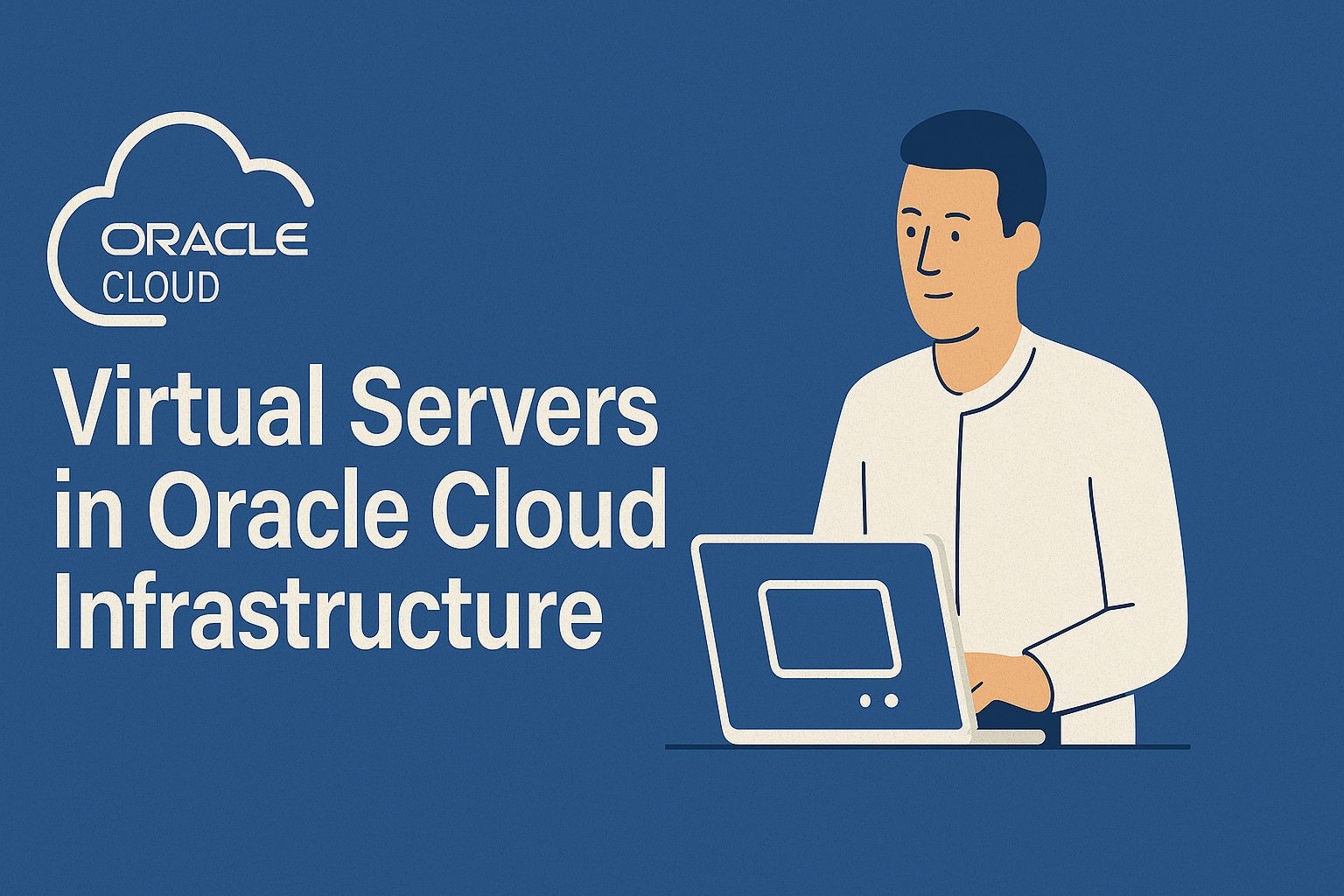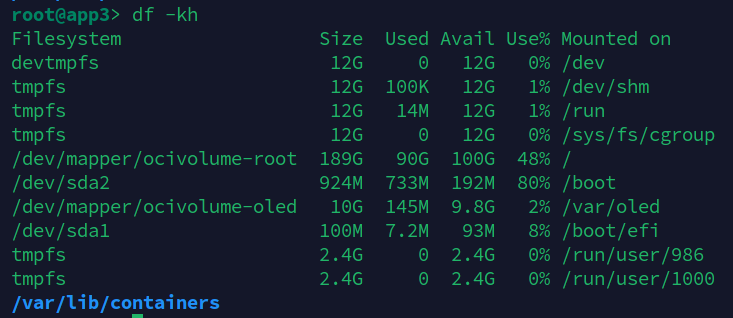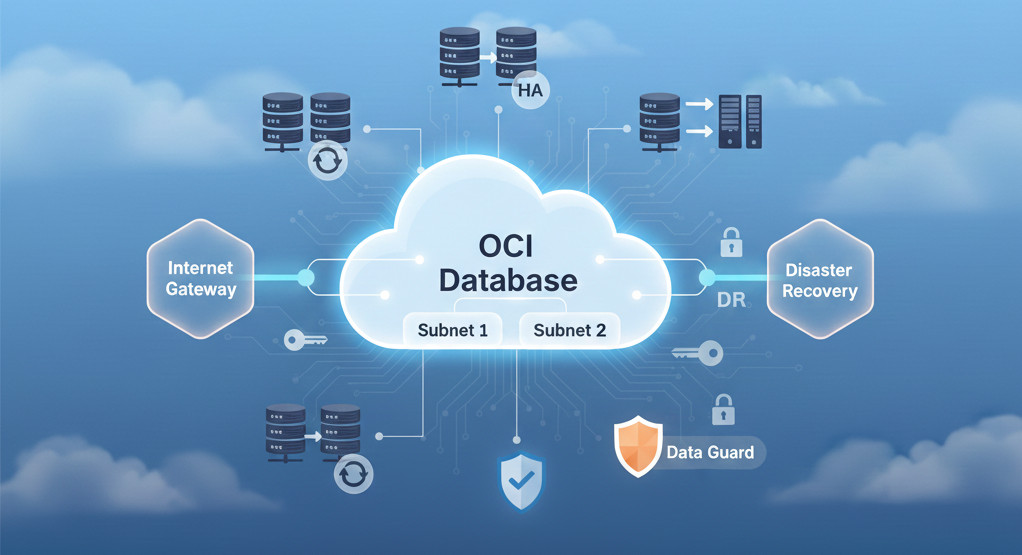Virtual Servers in Oracle Cloud Infrastructure (OCI): What They Are and How to Create a VM
After your network is ready, provision compute. This guide explains OCI virtual machines (VMs), shape selection, networking, and step-by-step creation via Console and CLI.
1. What Is a Virtual Server in OCI?
An OCI VM is an isolated compute instance on shared hardware. You control the OS, packages, and services, just like a traditional server—without managing physical infrastructure.
- Elastic performance: choose CPU, RAM, storage.
- OS flexibility: Oracle Linux, Ubuntu, Windows, custom images.
- Global placement: any region/AD.
- Integrated security: IAM, NSGs, private networking.
2. VM Shapes — Picking the Right Size
| Shape Type | Description | Typical Use |
|---|---|---|
| VM.Standard.E5/E4/E3 | AMD-based, balanced | General web/app servers |
| VM.Standard3.Flex | Flexible OCPU/RAM | Cost-efficient workloads |
| VM.Standard.A1.Flex | Arm-based Ampere (Always Free eligible) | Light web/API, dev |
| VM.DenseIO | NVMe local storage | DBs, caching, IO-heavy |
| VM.GPU | NVIDIA GPUs | AI/ML, graphics |
Tip: Start with a flexible shape, then right-size as usage grows.
3. Networking the VM
Place VMs in a VCN and subnet:
- Public subnet: for web-facing servers needing a public IP.
- Private subnet: for databases/internal tiers.
VCN: 10.0.0.0/16 ├─ Public Subnet: 10.0.1.0/24 (Web VM) └─ Private Subnet: 10.0.2.0/24 (DB VM)4. Launch a VM from the Console
- Compute → Instances → Create: name, compartment, AD.
- Image: e.g., Oracle Linux 9.
- Shape: pick VM.Standard3.Flex or A1.Flex (for Free).
- Networking: choose VCN/subnet; public IP if needed.
- SSH Keys: upload/generate public key.
- Boot Volume: size & backups.
- Create: when running, SSH in:
ssh -i ~/.ssh/id_rsa opc@<public-ip>
5. Manage & Scale
- Scale: change shape, attach block volumes, autoscale behind an LB.
- Monitor: use OCI Monitoring & Alarms.
- Security: restrict SSH, update OS regularly, back up boot volumes, use images.
6. Always Free VM Options
- Up to 2× A1.Flex instances (Arm) within Free limits.
- Up to 4 OCPUs / 24 GB RAM total, plus block storage and generous egress.
Great for websites, APIs, dev boxes—at zero cost.
7. Automate with OCI CLI (Optional)
oci compute instance launch \ --compartment-id ocid1.compartment.oc1... \ --availability-domain "Uocm:PHX-AD-1" \ --display-name "DevServer01" \ --shape VM.Standard3.Flex \ --shape-config '{"ocpus":1,"memoryInGBs":4}' \ --subnet-id ocid1.subnet.oc1... \ --assign-public-ip true \ --image-id ocid1.image.oc1... \ --ssh-authorized-keys-file ~/.ssh/id_rsa.pub8. Summary
OCI VMs provide control and flexibility for apps, APIs, and services. Choose the right shape, place instances correctly in your VCN, and use automation to keep deployments consistent.



